Malawi elections 'set an example' of democracy in Africa, says Mozambique's president
Mozambique: Government approves draft Sovereign Wealth Fund bill, and other measures – Watch
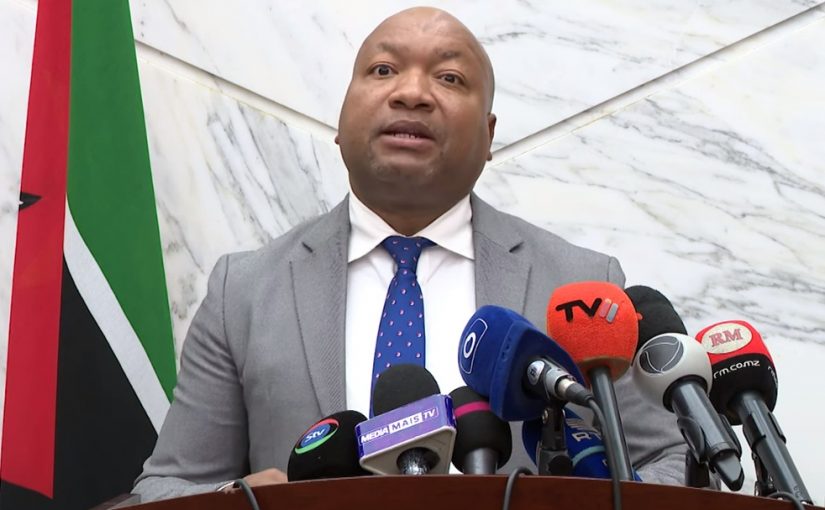
Screen grab: TVM
- The government on Tuesday approved the draft bill creating the Sovereign Fund, which will be submitted to parliament for approval.
- Yesterday’s Council of Ministers meeting, also cut the period for submitting candidacies for local elections from 120 to 60 days, among other measures.
After a long period of waiting, the news came. The Council of Ministers, in its 41st session, formalised the bill creating the Sovereign Fund.
The document should, according to the executive, ensure the profitability of revenues from the exploration of natural gas in the country.
The Council of Ministers held, on November 2, 2022, its 41st Ordinary Session and approved the bill creating the Sovereign Fund of Mozambique.
“The proposed law aims to ensure that revenues from oil exploration stimulate the country’s social and economic development, by maximising gains for the national economy, as well as ensuring that these revenues constitute a source of stabilisation of the State Budget and contribute to the generation of savings and wealth”, informed Filimão Suazi, spokesman for the Council of Ministers.
Of the amount coming from gas, 60% will be sent to the State Budget and 40% to the Sovereign Fund account in the first 15 years. After this period, there will be a restructuring of 50% for each side.
“The work carried out with different sectors of society resulted in the conclusion, among others, of the creation of an expected revenue distribution average. Thus, 60% will be allocated to the State Budget and 40% will be reserved for the Sovereign Fund,” said Filimão Suazi, spokesman for the Council of Ministers meeting.
The Sovereign Fund of Mozambique will be created under the Petroleum Law, whose article 37 determines that “it is up to the Assembly of the Republic to define a mechanism for the sustainable and transparent management of revenues from the exploitation of the country’s petroleum resources, taking into account the satisfaction of the needs of the present and those of future generations”.
In accordance with universally recognized principles, namely the so-called Santiago Principles, sovereign funds are based on the principle of sovereignty of the people over the natural resources of the respective country. Meanwhile, the Constitution of the Republic of Mozambique (Articles 98 and 109), the Land Law (Article 3) and the Petroleum Law (Article 18) all declare that the country’s land and natural resources are the property of the state.
Last week, non-governmental organisations said parliamentary approval of the Sovereign Fund, for the channelling of gas revenues from the Rovuma Basin, whose first export started on the 13th of this month, was a matter of urgency.
The group noted that the Sovereign Fund is designed to receive gains resulting from the exploitation of other natural resources and not just gas, having criticised the fact that the proposal deposited by the government in the Assembly of the Republic guarantees little representation of civil society, which, in their understanding, reduces the supervisory capacity of the mechanism.
Other measures
Also yesterday, the government reduced the time for candidates for the presidency of municipalities, to mayors, to present their candidacies.
The draft Law amends Articles 18, 54 and 132 of Law No. 7/2018, of August 3rd, amended and republished by Law No. 14/2018, of December 18th, which establishes the legal framework for the election holders of local authority bodies.
“The proposed law aims to reduce the time leading up to the application submission period from 120 days to 60 days,” Filimão Suazi said.
The cabinet session also formalised the resolution that ratifies the agreement between Mozambique and the Democratic Republic of São Tomé and Príncipe on the exemption of visas in ordinary passports.
The discussion in the Council of Ministers also compassed the introduction of new competences of provincial Secretaries of State.
The decree amends Article 5 of Decree No. 63/2020, of August 7th, which approves the Regulation of Law No. 7/2019, of May 31st, which establishes the legal framework for the organisation and functioning of the Bodies of State Representation in the Province and revokes decrees number 5/2020, of 10 February, and number 16/2020, of April 30th.
“This amendment aims to assign competence to the Secretary of State in the province for the admission of doctors to the districts,” Suazi revealed.
The Strategy for Preventing and Combating Corruption in Public Administration (EPCCAP) 2023/2032 was also approved by the executive.
“The strategy defines the government’s guidelines, with a view to making actions to prevent and combat corruption more effective and efficient, in order to inhibit the practice of deviant behaviour by public servants and society in general,” Suazi explained.
The 41st ordinary session of the Council of Ministers also analysed the report on the Prime Minister’s working visit to Cabo Delgado, from the 10th to the 12th of this month.
It also appreciated the participation of the Prime Minister in the Summit on Industrialization and Economic Diversification in Africa, which took place in Niger, from the 23rd to the 28th of this month.
At this Tuesday’s session of the Council of Ministers, the government also considered the resolution which appoints Carlos Bambo as chairman of the Board of Directors of the Mozambique Port and Railways Institute, among other instruments.
READ: Government creates Mozambique Port and Railways Institute
Watch the TVM report.




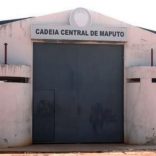
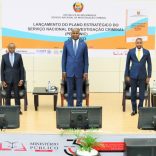
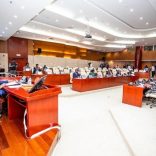
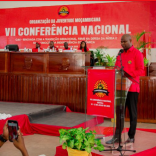




Leave a Reply
Be the First to Comment!
You must be logged in to post a comment.
You must be logged in to post a comment.